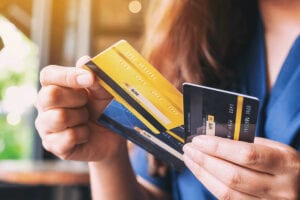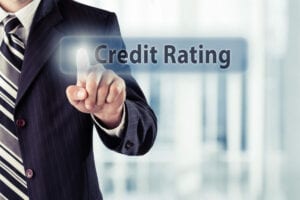Getting to Know Secured Debt and Unsecured Debt
Learn the difference between debts with and without collateral and what they mean for your finances
With secured debt, your lenders have rights to your assets if you do not make your monthly payment on time. For example, your mortgage lender has rights to your home if you fail to pay. Likewise, your auto lender has rights to your car if you don’t cover your monthly payment.
A lot of your debt, like credit card debt, is often unsecured. This means that creditors do not have the rights to any of your assets. Even if you do not pay your monthly bill. If you don’t pay an unsecured debt, the creditor will ask you to pay. If you don’t, the creditor will get a debt collector on board to try to hurry you into paying. If you still refuse to pay, the creditor must sue you to get the court’s permission to try to collect what you owe. A creditor can only seize your assets with permission from the courts.
Unsecured debt can be tricky and it has the potential to be extremely problematic for your budget. On the other hand, this type of debt provides a unique opportunity to reduce debt quickly. This is helpful if you find your debt rising and need to take care of it right away.
If unsecured debt is causing problems for your finances, give us a call at (844)-402-3073 to speak with a trained credit counsellor. They will review your debts and provide advice on what options will bring you debt relief. You can also get started with our Free Debt Analysis and a counsellor will get back to you soon.
Why is Unsecured Debt Different?
Credit cards are the most common example of unsecured debt. The higher your credit card balance, the more you need to pay monthly. This differs from secured debts, such as your mortgage or car payment, where you pay a fixed amount each month. Regardless of the current amount of debt you owe in total. This flexibility makes unsecured debts more difficult to plan around because there is no set monthly payment amount. While you know exactly what money you owe for your mortgage, a few additional charges in any month given could make your monthly credit card bills a lot higher than expected. However, unsecured debt provides you with the opportunity to reduce debt if you have the funds available.
The Flexibility of Unsecured Debt
Think about a situation where your debt begins to exceed what you can afford on your current budget. The more you charge to your credit cards, the higher your bills rise. You will eventually reach a point where you have to start juggling bills. Or worse, take out payday loans to make up for your shortfalls. Unsecured debt may be a problem for you, but there are several solutions available to get you back on track.
Firstly, focus your extra cash flow on reducing your unsecured debt. By paying off one debt at a time, you reduce the amount they expect you to pay every month. Doing so helps adjust your debt-to-income ratio back to a reasonable level, ensuring your monthly obligations are in line with your monthly income level. Keep in mind, this only works with unsecured debts, because secured debt payments are fixed and cannot change regardless of what you owe.
How to Consolidate Unsecured Debt
If you don’t feel capable of reducing your debt on your own, unsecured debt may still allow you to find a way out because you can consolidate. In most cases, you cannot consolidate secured debts (your current mortgage, auto loan or student loans) using a debt consolidation program. In contrast, you can consolidate unsecured debts easily to combine multiple debts into one low monthly payment. With unsecured debt payments, you may be able to reduce your monthly payment by as much as 50%, depending on your circumstances and which debt consolidation solution you choose.
If unsecured debts are creating havoc on your finances or if you need help developing a strategy to reduce your unsecured debt, give us a call at (844)-402-3073. A trained credit counsellor will review your financial situation for free and provide advice to get you on the right path for your future financial success.
Talk to a trained credit counsellor now for a free debt and budget assessment so you can see if a debt management program is the right debt relief solution for you!



